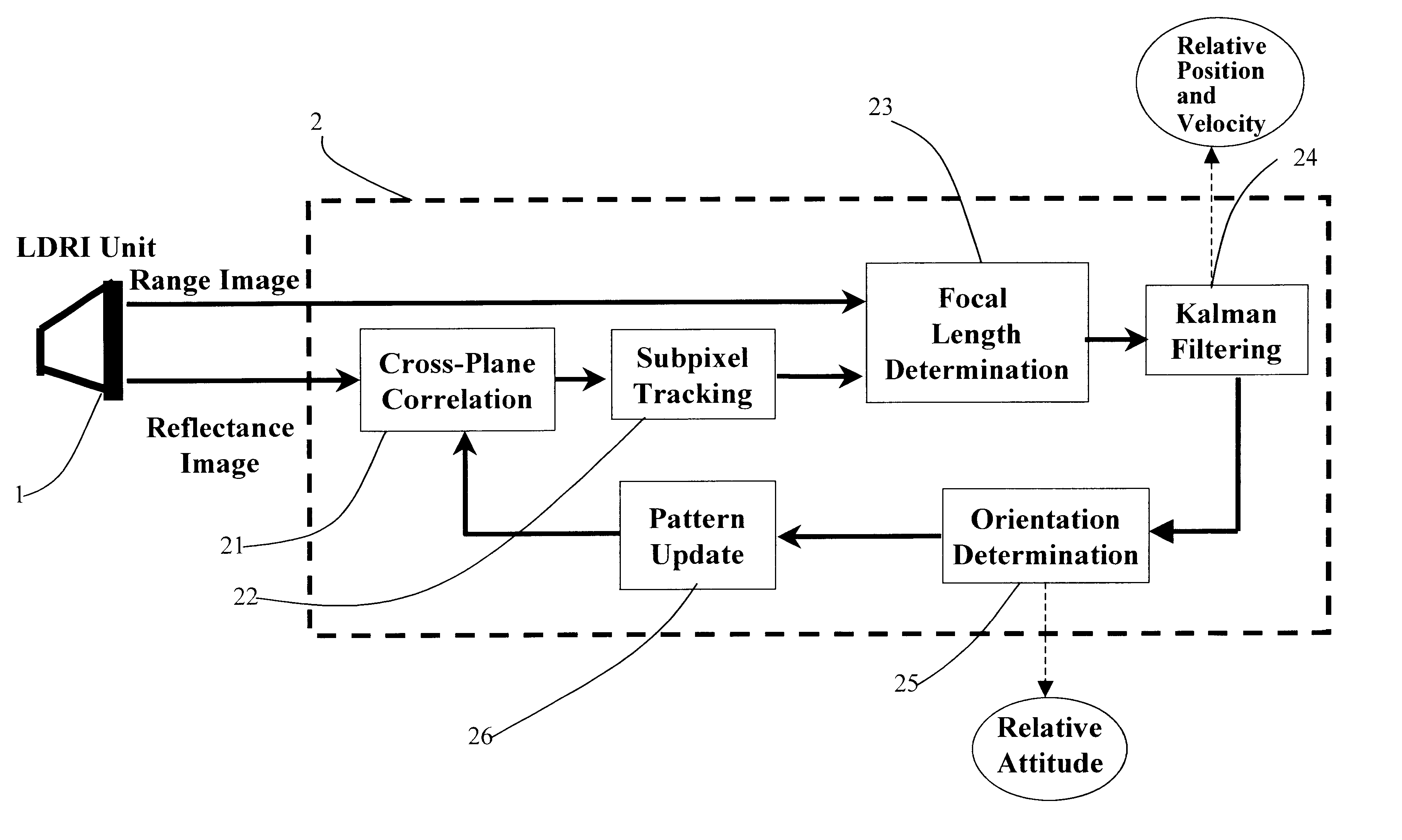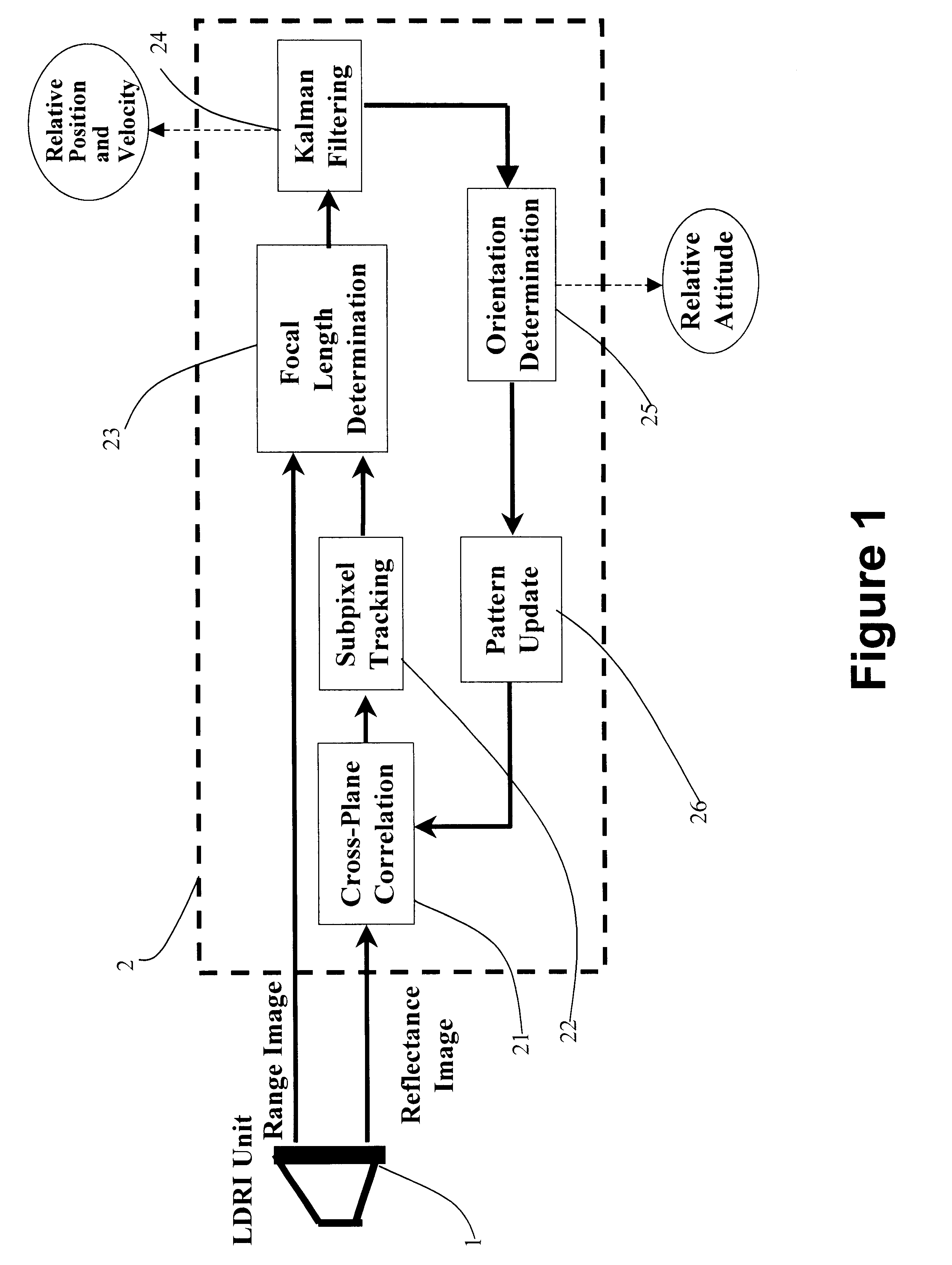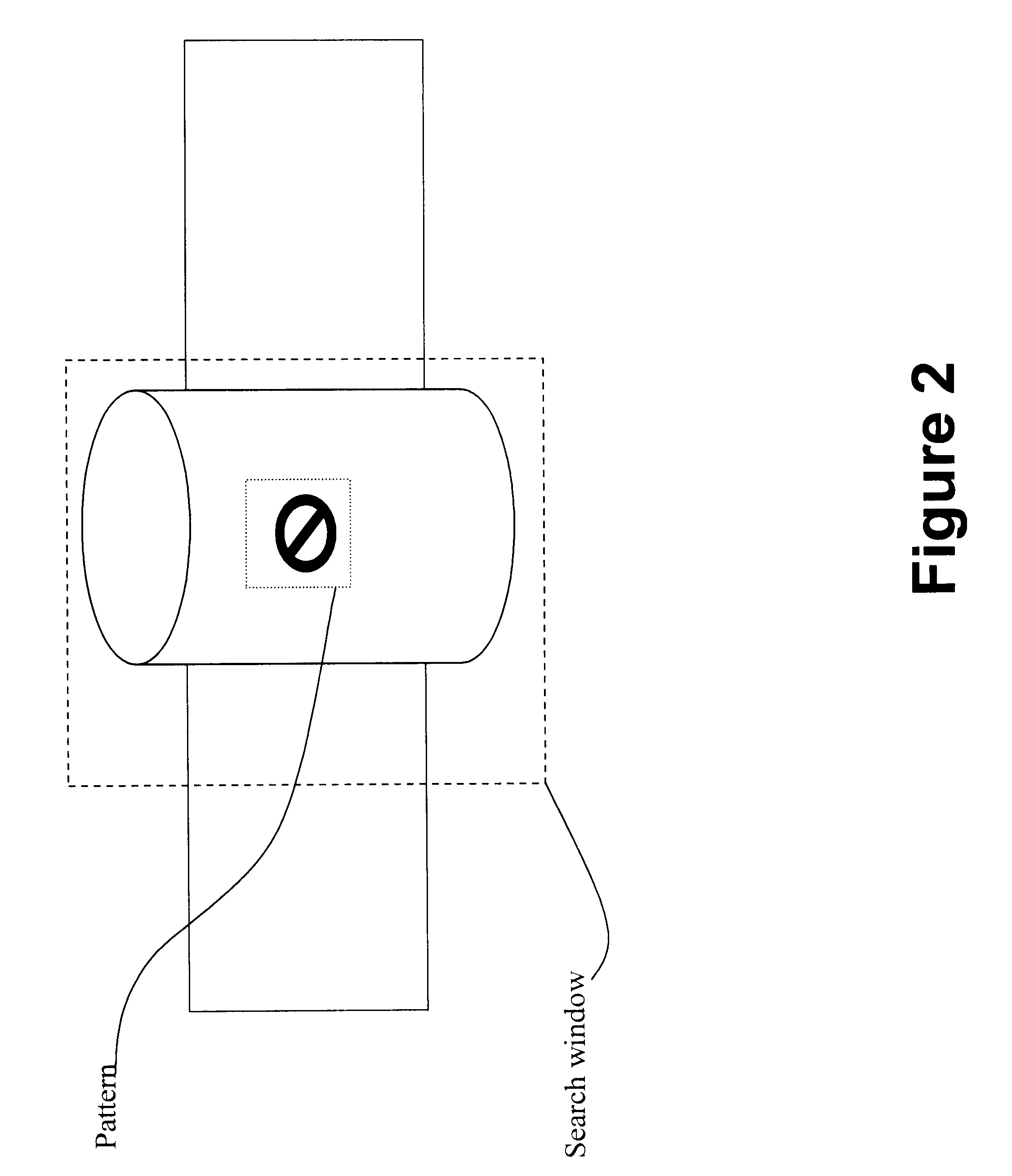Three-dimensional relative positioning and tracking using LDRI
a technology applied in the field of relative positioning and tracking process, can solve the problem of still challenging to provide a processing method for the ldri
- Summary
- Abstract
- Description
- Claims
- Application Information
AI Technical Summary
Benefits of technology
Problems solved by technology
Method used
Image
Examples
Embodiment Construction
Referring to FIGS. 1 to 9, a three-dimensional (3D) relative positioning and tracking process utilizing the laser dynamic range imager (LDRI) is illustrated, wherein the reflectance imagery and range imagery are processed to simultaneously obtain the 3-D motion of multiple points of a target without the necessity of using multiple cameras and specific targets.
As shown in FIG. 9, it is a known art that operation of the Laser Dynamic Range Imager relies on measurements of the phase difference between an intensity-modulated probe laser beam that has been initially diffused over the field of view, and its reflected beam from the target. In a Laser Dynamic Rang Imager (LDRI), a laser diode is intensity modulated at a given frequency f.sub.m. This laser illuminates the entire field of view of the scene of interest. Light is collected by a lens from the scene onto an image intensifier tube and then transmitted to a Charge Coupled Device (CCD) camera.
The LDRI generates two kinds of imagery,...
PUM
 Login to View More
Login to View More Abstract
Description
Claims
Application Information
 Login to View More
Login to View More - R&D
- Intellectual Property
- Life Sciences
- Materials
- Tech Scout
- Unparalleled Data Quality
- Higher Quality Content
- 60% Fewer Hallucinations
Browse by: Latest US Patents, China's latest patents, Technical Efficacy Thesaurus, Application Domain, Technology Topic, Popular Technical Reports.
© 2025 PatSnap. All rights reserved.Legal|Privacy policy|Modern Slavery Act Transparency Statement|Sitemap|About US| Contact US: help@patsnap.com



